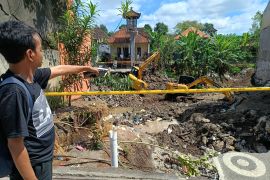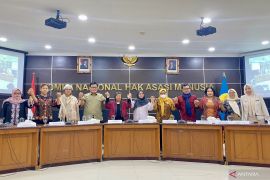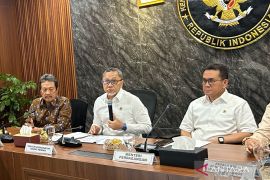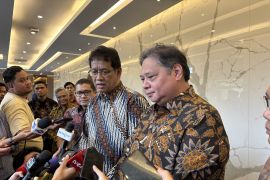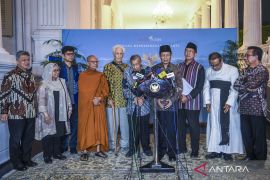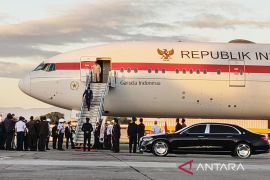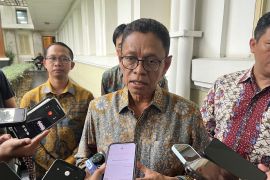Jakarta, Indonesia, Oct. 9 (ANTARA/Medianet International-AsiaNet) --
A team of Indonesian and Australian scientists has dated some of the world's earliest known cave art on the Indonesian island of Sulawesi, challenging the commonly held view that Europeans were the first to produce rock art.
The team dated 12 hand stencils and two figurative animal depictions at seven cave sites in the limestone 'tower karst' of southwest Sulawesi, with the earliest image (a hand stencil) being at least 40,000 years old. The findings are published today in the prestigious journal, Nature.
The Sulawesi project builds on decades of research carried out by Indonesian and European archaeologists, and more recently by the late Professor Mike Morwood from the University of Wollongong's (UOW) Centre for Archaeological Science in Australia, where many of the team members involved in this discovery are based.
Co-author of the paper, Thomas Sutikna, who is completing a PhD at UOW's School of Earth and Environmental Sciences, was part of the Indonesian team that uncovered the new species of tiny human nicknamed 'the Hobbit' ten years ago. He said this latest finding holds important implications for theories of human evolution.
"Rock art is one of the first indicators of an abstract mind - the onset of being human as we know it," he said.
Historically, archaeologists have thought that rock art first emerged in Europe, with a minimum age of 41,000 years for the oldest dated rock art in the world - a painting of a red disk at El Castillo in Spain. Co-author of the Nature paper, Dr Anthony Dosseto, Director of UOW's Wollongong Isotope Geochronology Laboratory, said the discovery shows that at the same time as Europeans were expressing themselves on cave walls, people in Sulawesi were doing the same.
"Europeans can't exclusively claim to be the first to develop an abstract mind anymore. They need to share this, at least, with the early inhabitants of Indonesia," Dr Dosseto said.
Mr Sutikna said the finding suggests that figurative art may have been part of the cultural repertoire of his ancient Indonesian ancestors - the first modern human populations to reach this region more than 40,000 years ago.
More info: http://media.uow.edu.au/releases/UOW181638.html
Images: http://bit.ly/10nbpi0.
Media contacts: Thomas Sutikna,
+61-423-630-449,
ts788@uowmail.edu.au, or
Dr Anthony Dosseto,
+61-432-578-321,
tonyd@uow.edu.au.
For general media enquiries, contact:
Elise Pitt,
+61-2-4221-3079, +61-422-959-953,
epitt@uow.edu.au
SOURCE: University of Wollongong
Editor: PR Wire
Copyright © ANTARA 2014


